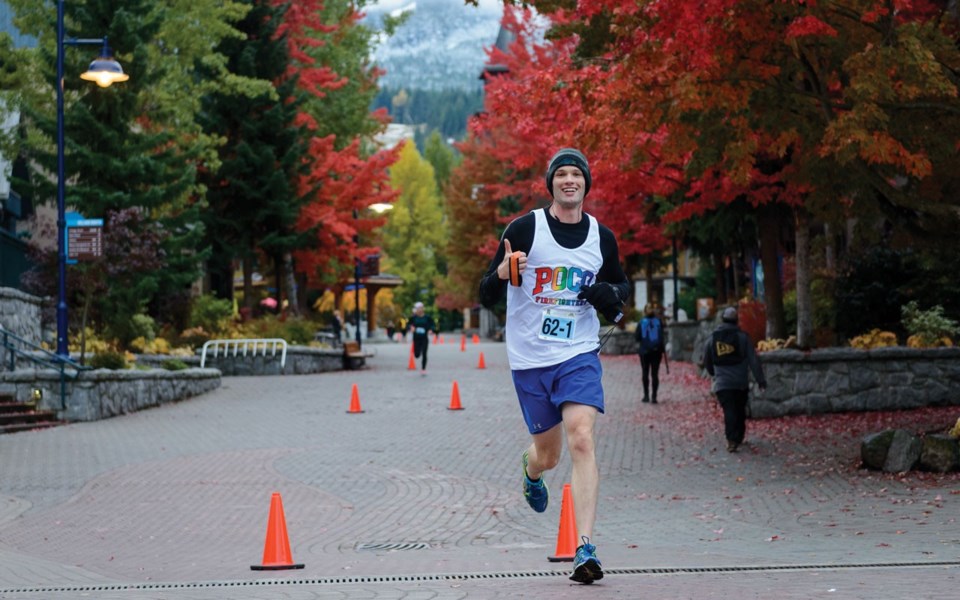Nine years ago, after the birth of her first child, Deidre Potter decided to tackle her first foot race.
She had competed in plenty of 12-hour endurance mountain bike races in Australia and was starting to delve into 24-hour races when she got pregnant, so she reasoned a 100-kilometre running race wouldn't be a stretch.
"I definitely ate it big time," she said. "I made it to 54 kilometres. I did everything wrong—textbook everything wrong, nutrition, hydration, clothing, everything. It was a really humbling experience."
While she didn't make it to the finish line of that race, the experience set her on course to discover a love of running (and cross the finish line in several ultra marathons)—and help curb her postpartum depression.
"With my persistence and changing my eating and getting out and being more active, it completely removed all of that fuzziness you get when you get into that dark place," she said. "The more I did, the better I felt."
The same held true for the next child that came along about a year later. Now living in Whistler with an 11-month-old daughter, Potter is using that same tactic to keep post-partum depression at bay and will be among the first runners to try out the new 50-kilometre distance of the Whistler 50 Relay & Ultra on Saturday, Oct. 19.
"I love this race, I love the atmosphere, I love the race organizer," she said. "It's nice to do something in the village and get that motivation from people who know you. I figured I'd just see how it goes."
Race director Dave Clark said the event has undergone a few changes this year—which includes adding that new distance and scrapping the 50-mile (80 km) distance for solo runners. Instead, only relay teams will run 50 miles.
The change was prompted by the influx of 50-mile races in the area that appeal to runners looking more for backcountry adventure than tackling a tough distance, he said. (The race has traditionally taken place largely on the Valley Trail.)
"We thought, 'Well, if that's the case and people are looking for that longer distance and more backcountry feel, why don't we try to make it more user friendly, so to speak, and make it a 50-km event,'" Clark said.
Organizers also changed the course to better highlight Whistler's natural beauty. "We're super excited about it being primarily in Lost Lake Park and showcasing the park and the natural beauty of Whistler," he said. "That's what we're most excited about."
While it's hard to directly connect the changes to an upswing in registration this year, the race has seen a 15-per-cent increase in runners signing up for the 50-mile relay and a 20-per-cent increase for the ultra.
"It's hard to tell at this point, but we'll get feedback from runners over the weekend," he added.
Ultimately, they plan to bill the 50-kilometre distance as an approachable way to get into ultra marathons. To that end, 10-kilometre loops around Lost Lake Park means racers will encounter an aid station every five kilometres.
"Dee (Deidre Potter) said she's just had her baby 11 months ago and it's like, 'How am I going to get myself back into this?'" Clark said. "She was talking with a friend and all of a sudden, she was like, 'Let's do this.' It's an approachable thing rather than a psychologically daunting [race]."
For her part, Potter encourages all new moms to dedicate time to getting outside and moving—even if it's not at an ultra-marathon distance.
"It can be that first five-kilometre run or a five-kilometre walk—just being outside," she says. "There's emphasis on self-care nowadays, looking into yourself and making sure you're doing all right. I never thought anything of it until I started doing it for myself and realizing it's so important to be OK. [Just] know there are things out there to help you be OK."




